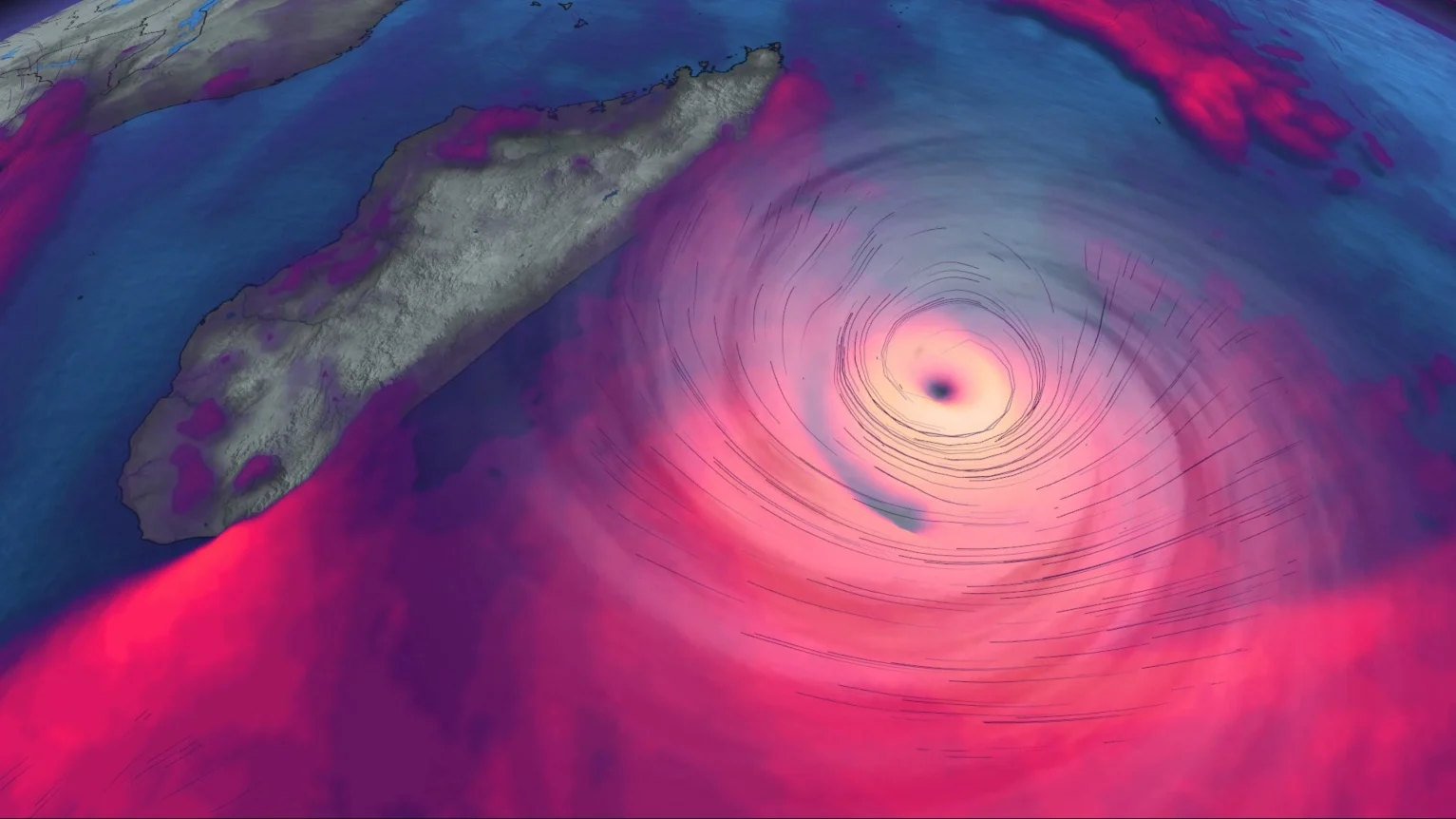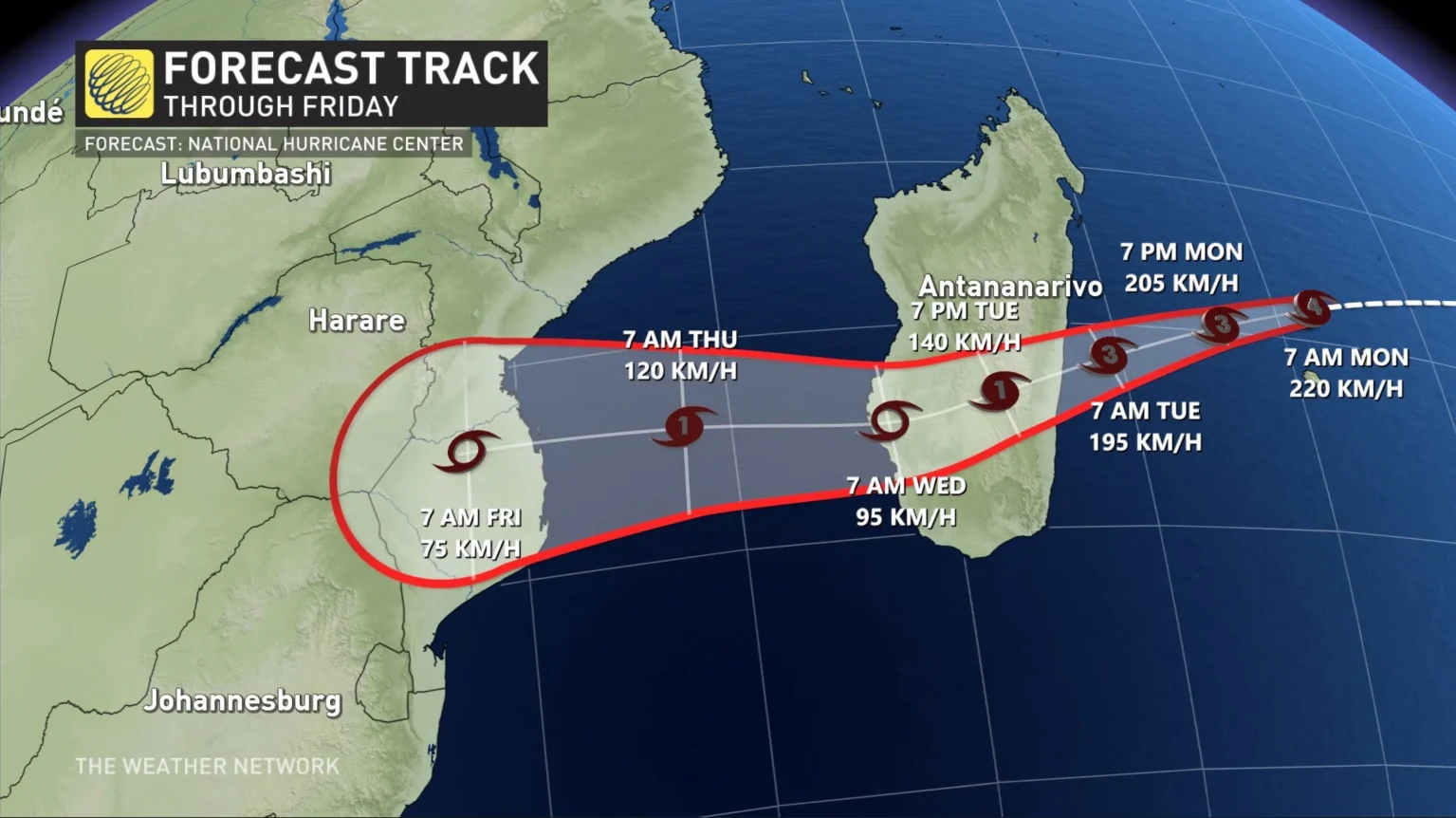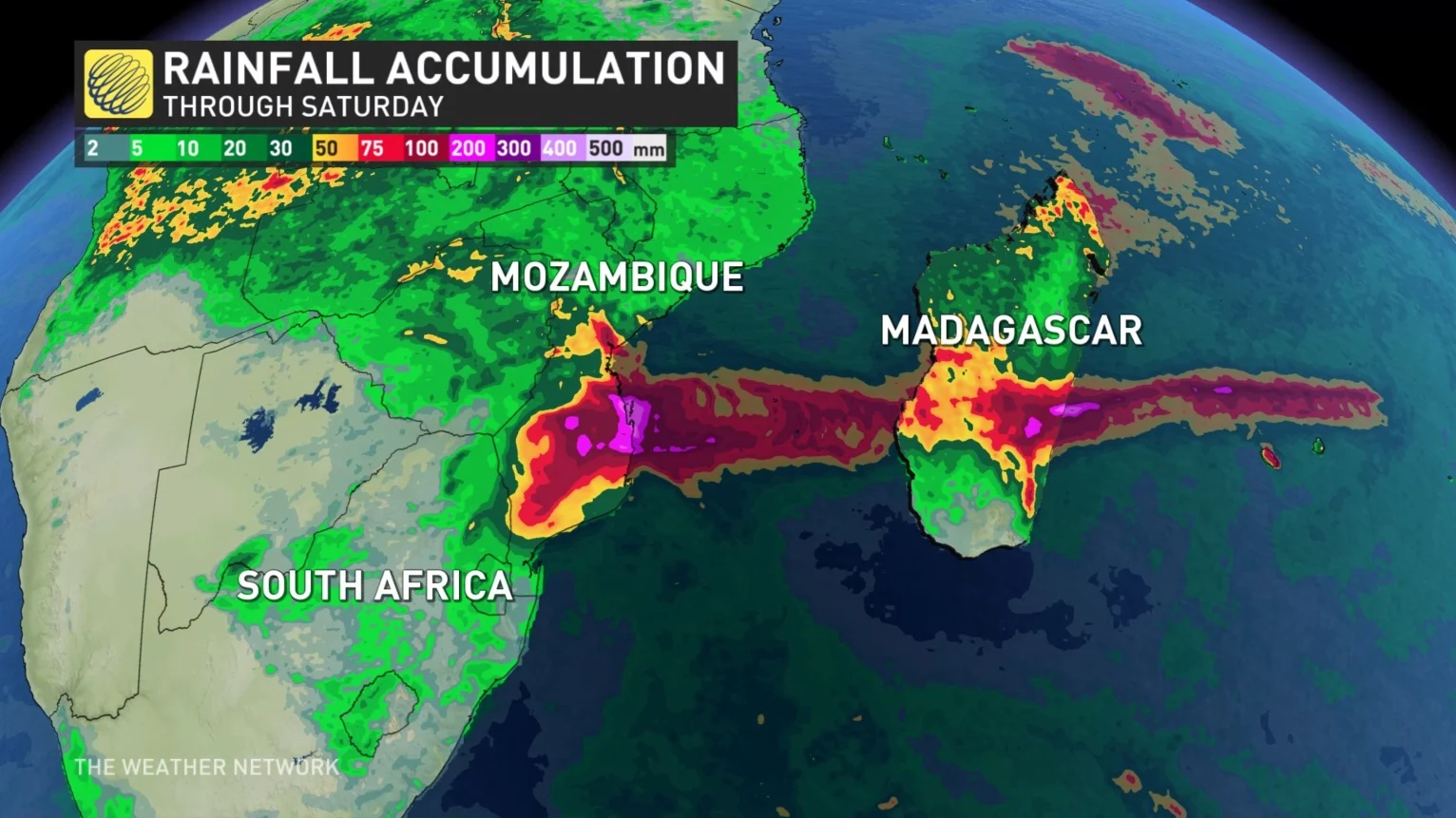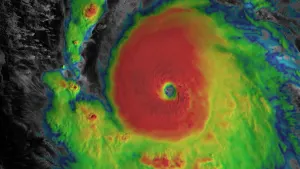
Canada's size is no match for this record-breaking cyclone
The extremely rare and long-lived Cyclone Freddy is about to traverse the entire Indian Ocean, making it only one of three others to do so. Along with its powerhouse strength, the storm has also broken cyclone energy records over the weekend.
SEE ALSO: Tropical cyclones decreased last century as global warming sped up
Tropical Storm Freddy achieved the first Category 5-equivalent strength of 2023 on Saturday when its wind speeds measured over 252 km/h.

As of Sunday, it moved into a slightly unfavourable environment, diminishing its strength to a Category 4 storm. Freddy is expected to make landfall at Category 3 status on Madagascar's western coast on Tuesday, and continue its tropical storm status to Africa's west coast later in the week.
Life-threatening surf and surge are forecast, along with rainfall amounts locally exceeding 300 mm. Madagascar, a country with a population of more than 30 million, is susceptible to many hazards and has one of the highest cyclone risks in Africa. Wind damage, flooding complications from rapid changes in topography and storm surge threats are all elevated with Cyclone Freddy.
Freddy has also broken cyclone energy readings before making devastating landfall Tuesday.

How much energy is released by an average hurricane?
Hurricanes extract energy from warm ocean temperatures and release it through condensation and thunderstorm activity around the eye. The kinetic energy of the wind energy, although less, is still immense. The average wind energy generated by a hurricane is 1.5 trillion watts per day -- enough power generation to cover half the world’s electrical energy production.

Cyclone Freddy developed on Feb. 5, so over two weeks it has generated a high accumulated cyclone energy (ACE) score.
On Sunday, the cyclone emitted more energy than the previous Southern Hemisphere record-holder, Fantala, which had a 17-day lifespan in the Indian Ocean in 2016.
Cyclone Freddy also developed Longitude-90 degrees east, and with its impacts to the Madagascar forecast, it is a highly unusual feat.









